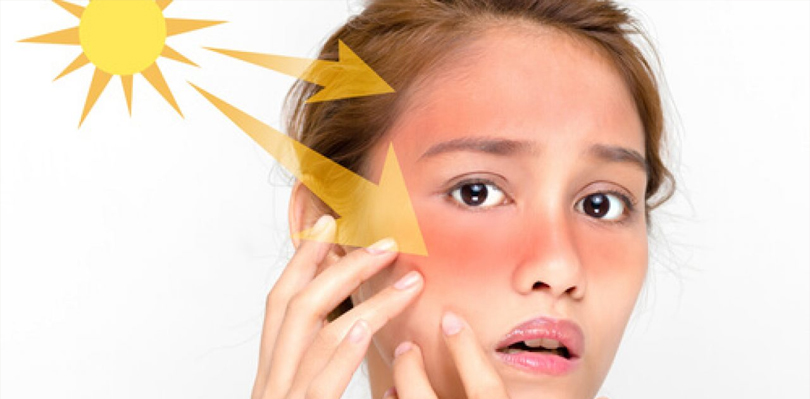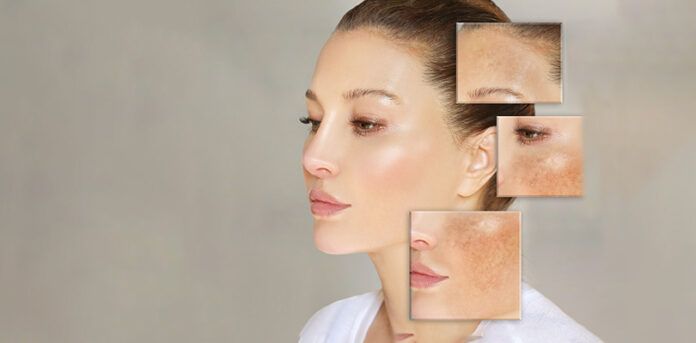Sunburn is an ordinary skin condition that occurs due to overexposure to the sun’s toxic ultraviolet (UV) rays. It can happen within minutes or hours of exposure and is characterized by symptoms such as redness, pain, swelling, and, in severe cases, blistering and peeling. Differentiating between mild and severe sunburn is important to determine the appropriate treatment approach.
Home Remedies For Treating Sunburn

Treating sunburn promptly is crucial to alleviate symptoms and prevent further damage. Fortunately, several effective home remedies can provide quick relief. Taking immediate actions after sunburn can help alleviate discomfort and prevent further damage.
Here are a few effective remedies that can help you get rid of it:
Cold Milk Compress
To soothe sunburned skin, you can try a cold milk compress. Take a clean cloth or cotton pads and soak them in cold milk. Gently apply the compress to the affected areas. The cold temperature of the milk can help cool down the skin and alleviate the burning sensation. Additionally, milk contains proteins that can help reduce inflammation and promote healing.
Cool Water
Taking a cool shower or bath can provide immediate relief for sunburned skin. Ensure that the water is cool, not hot, as hot water can further irritate the skin. The cool water will help lower the skin temperature, reduce inflammation, and soothe discomfort. You can also consider adding a cup of baking soda to the bathwater to further alleviate itching and inflammation.
Aloe Vera Gel
Aloe vera is a well-known natural remedy for sunburn. Extract the gel from a fresh aloe vera leaf or use commercially available pure aloe vera gel. Apply the gel directly to the sunburned skin and gently massage it in. Aloe vera has soothing and anti-inflammatory properties that can help reduce redness, pain, and inflammation. It also acts as a moisturizer, promoting the healing process of damaged skin.
Cold Compress
Using a cold compress can provide instant relief from sunburn. Take a clean cloth and dampen it with cool water. You can also wrap an ice pack in a thin towel. Gently place the compress on the affected areas for 10-15 minutes. The cold temperature will help constrict blood vessels, reduce swelling, and numb the pain associated with sunburn. Remember to take breaks between applications to prevent overcooling or frostbite.
Cucumber Slices
Cucumbers have natural cooling properties that can help soothe sunburned skin. Slice a chilled cucumber and place the slices directly on the affected areas. The coolness of the cucumber will provide relief from the heat and reduce inflammation. Cucumbers also contain antioxidants and hydrating properties, which can help nourish the skin and promote healing.
Oatmeal Bath
An oatmeal bath can be incredibly soothing for sunburned skin. Add colloidal oatmeal or finely ground oats to a cool bath and soak in it for 15-20 minutes. Oatmeal has anti-inflammatory properties that can help alleviate itching and reduce inflammation caused by sunburn. It forms a protective barrier on the skin, locking in moisture and allowing the skin to heal more effectively.
Honey
Honey is a natural remedy that can help with sunburn relief and healing. Apply a thin layer of raw honey directly to the affected areas and leave it on for 15-20 minutes. Then, rinse off with cool water. Honey has antimicrobial and anti-inflammatory properties that can help soothe the skin, reduce redness, and promote the healing process. It also provides hydration to the skin, aiding in its recovery.
Additional Tips For Sunburn Relief
In addition to the home remedies mentioned above, here are some extra tips to alleviate sunburn symptoms and prevent further damage.
Protecting The Skin From Further Damage
Avoiding direct sun exposure, especially during peak hours (10 am to 4 pm), is crucial for preventing additional sunburn. Wearing loose-fitting clothing that covers the sunburned areas or using a wide-brimmed hat and sunglasses can provide added protection. Applying a broad-spectrum sunscreen with a high SPF to shield the skin from harmful UV rays is essential.
Avoiding Irritants
Sunburned skin is sensitive, so it’s important to avoid irritating products. Opt for fragrance-free products, as perfumes and fragrances can further irritate the skin. Use gentle cleansers and avoid harsh soaps or exfoliants that can exacerbate sunburn symptoms.
Seeking Medical Attention
If you experience severe sunburn symptoms like fever, chills, dizziness, or severe blistering, it’s important to consult a healthcare professional. They can assess the severity of the burn and provide appropriate medical treatment.
By adopting sun safety practices, wearing protective clothing, and seeking shade, you can protect your skin from harmful UV rays and reduce the risk of sunburn. Remember, if your sunburn is severe or accompanied by concerning symptoms, it’s important to consult a healthcare professional for appropriate medical attention.
Related: How To Choose Best Sun Screen For Your Skin: Types And More
FAQs
Can I use petroleum jelly on sunburned skin?
It is generally not recommended to use petroleum jelly on sunburned skin. While petroleum jelly can provide a barrier to lock in moisture, it can also trap heat and exacerbate the symptoms of sunburn. It’s best to opt for soothing and cooling remedies like aloe vera gel or moisturizers specifically designed for sunburn relief.
Should I pop blisters caused by sunburn?
It is generally advised not to pop blisters caused by sunburn. Blisters act as a natural protective barrier for the underlying skin, preventing infection and promoting healing. If the blisters are causing severe pain or discomfort, it’s best to consult a healthcare professional who can provide proper guidance and treatment.
How long does it take for sunburn to heal?
The healing time for sunburn can vary depending on the severity of the burn. Mild sunburns typically heal within a week, while more severe cases may take longer. It’s important to allow the skin to heal naturally and avoid further sun exposure during this time. If the symptoms worsen or do not improve after a week, it’s advisable to seek medical attention for further evaluation and guidance.

